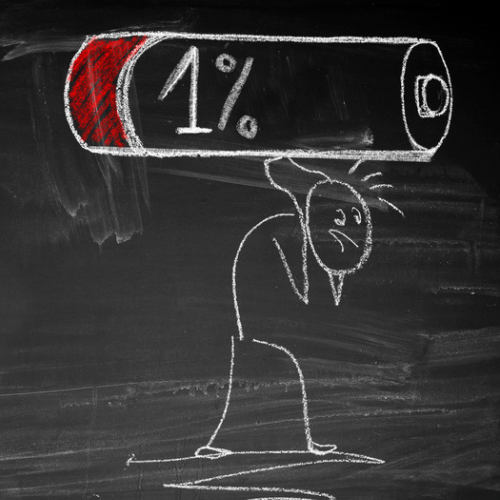De advertentie wordt op de pagina vertoond
huidig bericht: "7 Reasons for Resentment and How to Overcome It", ID: 337
Advertentie: Advertisement created on February 8, 2025 9:40 pm (487)
Placement: Voor de inhoud 2 (500)
Vind oplossingen in de handleiding
De advertentie wordt op de pagina vertoond
huidig bericht: "7 Reasons for Resentment and How to Overcome It", ID: 337
Advertentie: Advertentie gemaakt op mei 19, 2025 2:16 pm (506)
Placement: Voor de inhoud (507)
Vind oplossingen in de handleiding
Resentment is the lingering frustration or anger that affects your relationships, work, and daily life.. While it’s a natural emotion, holding onto resentment can weigh you down and impact your mental health. So, what causes resentment, and more importantly, how can you deal with it? Let’s dive into the seven most common reasons you feel resentment and practical tips to let it go.
1. Unmet Expectations: Why They Hurt and How to Handle Them

One of the biggest triggers for resentment is unmet expectations. Expecting support or recognition can lead to frustration when unspoken or unrealistic expectations aren’t met.
Unmet expectations can leave you feeling hurt, frustrated, or even resentful. When a friend, boss, or relationship lets you down, the disappointment feels real. Often, the problem lies in unspoken needs or unrealistic assumptions.
The key to overcoming this? Open communication. Let people know what you need instead of expecting them to read your mind. Be realistic about what others can offer, and remember that not every expectation will be met—and that’s okay. Focus on clear communication and let go of what you can’t control to build healthier, happier connections.
How to Overcome It: Be clear about your expectations and communicate them. Sometimes, people don’t know what you need unless you tell them.
2. Feeling Taken for Granted: How to Recognize It and Reclaim Your Worth

Do you ever feel like you’re always giving, but no one appreciates it? This can lead to resentment, especially in relationships where effort feels one-sided.
Feeling taken for granted can be exhausting. It’s that nagging sense that your effort, time, or kindness isn’t being appreciated. In friendships, relationships, or work, feeling unappreciated often comes from a lack of recognition.
The first step to overcoming this is to value yourself. Speak up about your feelings and set boundaries when needed. Communicate your worth and set boundaries to build balanced, fulfilling relationships.
How to Overcome It: Speak up! Let people know how you feel and set boundaries. Self-care is key to avoiding burnout and bitterness.
3. Lack of Recognition: Why It Hurts and How to Move Forward

Feeling unrecognized for your hard work can be deeply discouraging. Whether it’s at work, in your relationships, or within your social circle, feeling overlooked can lead to frustration and resentment. Working hard without receiving acknowledgment can leave you feeling undervalued. This is common in both personal and professional settings, making you resentful of those who seem to overlook your efforts.
The key to overcoming this is to acknowledge your own value first. Advocate for yourself when needed—whether it’s a conversation with your boss or expressing your feelings to someone close to you. At the same time, focus on intrinsic rewards rather than external validation. Value yourself and speak up to create a more balanced, fulfilling life.
How to Overcome It: Advocate for yourself. Whether it’s a conversation with your boss or letting a friend know how you’ve been contributing, self-advocacy is empowering.
4. Comparisons with Others: How to Stop and Focus on Your Own Journey

It’s so easy to fall into the comparison trap, especially with social media constantly showing everyone’s highlight reel. Seeing others succeed, travel, or achieve their goals can make you feel like you’re falling behind. But comparisons only steal your joy and distract you from your own progress.
The truth is, everyone’s journey is unique. Instead of focusing on what others have, turn your attention to your own growth and achievements. Practice gratitude for the things going well in your life and remind yourself that success isn’t a race. By celebrating your own milestones, you’ll feel more confident and less pressured by what others are doing.
Social media doesn’t help here—constantly comparing your life to others can breed resentment. Seeing others succeed while you feel stuck can create bitterness toward them or your own circumstances.
How to Overcome It: Focus on gratitude and your unique journey. Remember, everyone’s timeline is different, and comparison steals joy.
5. Past Grievances: Letting Go for a Happier Future.

Holding onto past grievances can weigh you down and keep you stuck in negativity. Revisiting past betrayals or arguments fuels resentment and blocks personal growth.
The first step to letting go is recognizing that holding onto the past only hurts you. Forgiveness—whether for yourself or others—can be a powerful tool for healing. It doesn’t mean forgetting what happened; it means freeing yourself from its control. By releasing past grievances, you make space for peace, growth, and better connections in your life.
Holding onto past hurt, whether from a betrayal, broken trust, or unresolved argument, can foster resentment that lingers for years.
How to Overcome It: Practice forgiveness—for yourself and others. Letting go doesn’t mean forgetting; it means freeing yourself from the weight of the past.
6. Feeling Overwhelmed or Burnt Out because of resentment: How to Regain Your Energy

Feeling overwhelmed or burnt out can leave you drained, both physically and emotionally.Juggling too many responsibilities can lead to exhaustion and frustration, leaving you stuck in a cycle.
The solution lies in prioritizing yourself. Take a step back, set boundaries, and learn to say no when needed. Carve out time for rest, hobbies, or anything that recharges you. Remember, you can’t pour from an empty cup. Prioritize self-care and time management to feel balanced, energized, and ready to thrive.
When you’re stretched too thin, resentment builds towards those you feel obligated to.
How to Overcome It: Prioritize self-care and learn to say no. You’re not a superhero, and it’s okay to take a step back.
7. Lack of Communication: How to Bridge the Gap and Build Better Connections

A lack of communication can create misunderstandings, distance, and even resentment in your relationships. When feelings are bottled up or assumptions replace conversations, it’s easy for frustration to build over time.
The key to overcoming this is practicing open and honest communication. Share your thoughts and feelings without fear, and be willing to listen in return. Clear conversations help resolve conflicts, build trust, and strengthen your connections. By prioritizing communication, you’ll create healthier, more supportive relationships in all areas of your life.
Miscommunication or not speaking up about your feelings can create misunderstandings that lead to resentment. Bottling up your emotions often makes things worse.
How to Overcome It: Practice open and honest communication. Share how you’re feeling and be willing to listen. Conversations can clear the air and strengthen your connections.
Why Letting Go of Resentment Matters
Resentment doesn’t just affect your relationships; it impacts your mental and physical health, too. It can lead to stress, anxiety, and even health issues like high blood pressure. Letting go of resentment helps you create healthier relationships, improve your well-being, and make space for happiness.
Holding onto resentment doesn’t just affect your relationships—it impacts your mental and physical health too. Resentment can lead to stress, anxiety, and even physical issues like high blood pressure or fatigue. It keeps you stuck in the past, preventing you from fully enjoying the present.
Letting go of resentment is a gift you give yourself. It allows you to heal, move forward, and make space for positivity and growth in your life. By releasing anger and frustration, you improve your well-being and create healthier, more fulfilling connections with those around you.
Final Thoughts: Free Yourself from Resentment
Resentment definitely feel overwhelming, but holding onto it only harms you. By understanding its causes, practicing forgiveness, and focusing on healthy communication, you can break free from its grip. Letting go of resentment clears the way for personal growth, stronger relationships, and a happier, more peaceful life. Choose to release what no longer serves you—you deserve the freedom to thrive.
Feeling resentment is normal, but holding onto it isn’t. Find out the root causes, talk to them, and free yourself to move forward with peace and positivity.
Remember, you deserve relationships and a mindset that bring you joy—not resentment.




